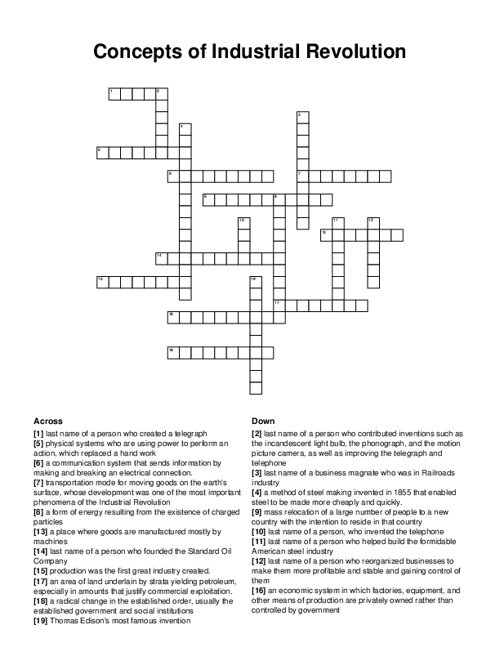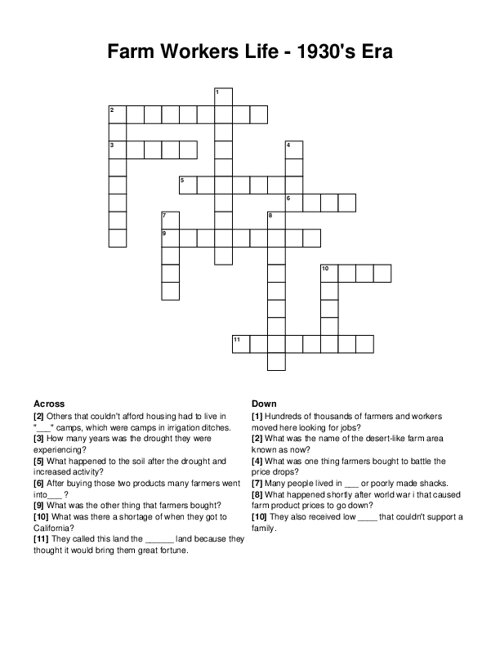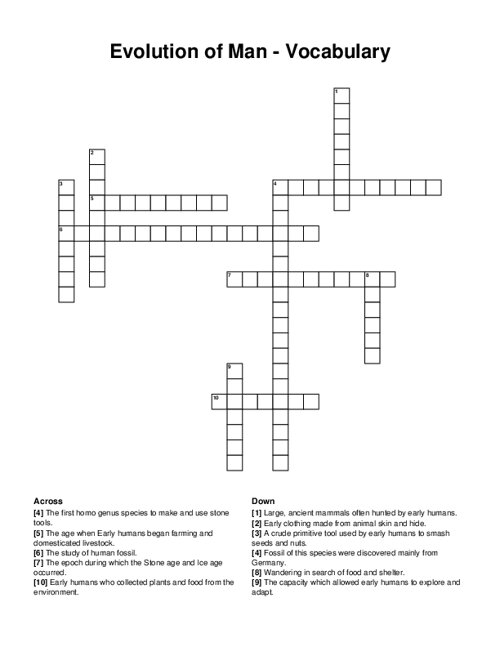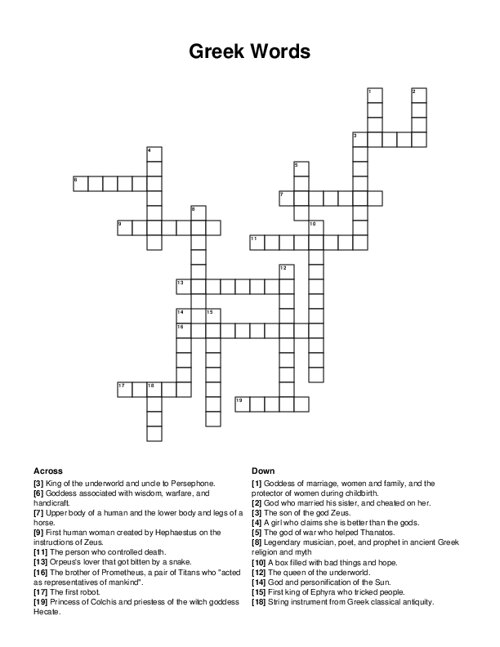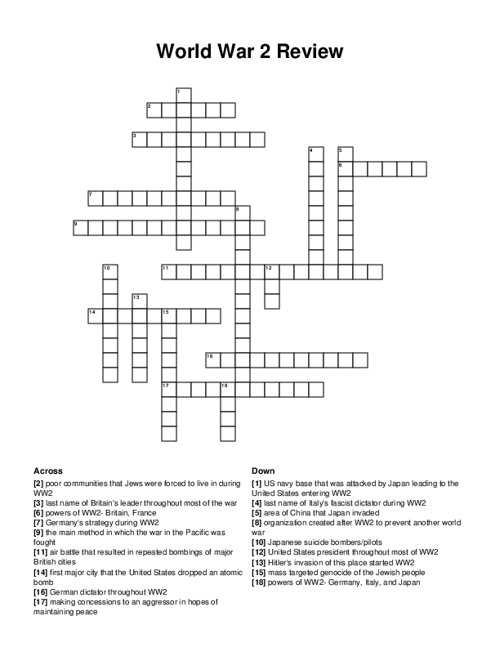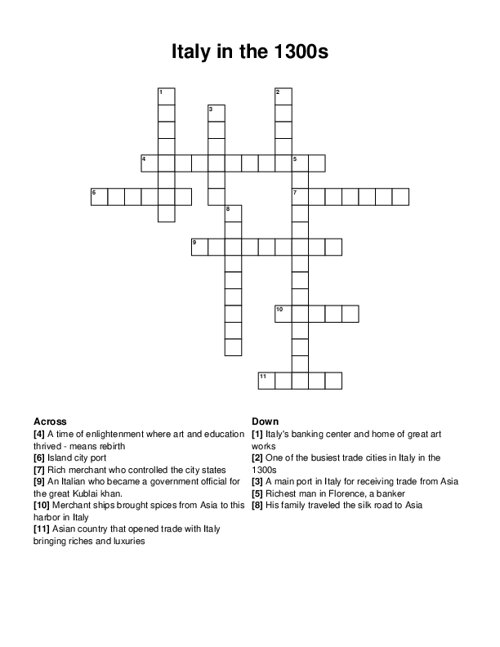Concepts of Industrial Revolution Crossword Puzzle
Download and print this Concepts of Industrial Revolution crossword puzzle.
Related puzzles:
QUESTIONS LIST:
- railroad: transportation mode for moving goods on the earth's surface, whose development was one of the most important phenomena of the industrial revolution
- rockefeller: last name of a person who founded the standard oil company
- telegraph: a communication system that sends information by making and breaking an electrical connection.
- immigration: mass relocation of a large number of people to a new country with the intention to reside in that country
- oilfield: an area of land underlain by strata yielding petroleum, especially in amounts that justify commercial exploitation.
- bessemer process: a method of steel making invented in 1855 that enabled steel to be made more cheaply and quickly.
- light bulb: thomas edison's most famous invention
- morse: last name of a person who created a telegraph
- revolution: a radical change in the established order, usually the established government and social institutions
- bell: last name of a person, who invented the telephone
- vanderbilt: last name of a business magnate who was in railroads industry
- edison: last name of a person who contributed inventions such as the incandescent light bulb, the phonograph, and the motion picture camera, as well as improving the telegraph and telephone
- carnegie: last name of a person who helped build the formidable american steel industry
- capitalism: an economic system in which factories, equipment, and other means of production are privately owned rather than controlled by government
- electricity: a form of energy resulting from the existence of charged particles
- factory: a place where goods are manufactured mostly by machines
- machines: physical systems who are using power to perform an action, which replaced a hand work
- morgan: last name of a person who reorganized businesses to make them more profitable and stable and gaining control of them
- textiles: production was the first great industry created.
